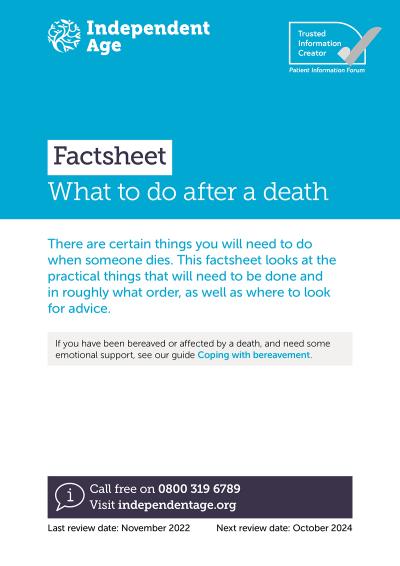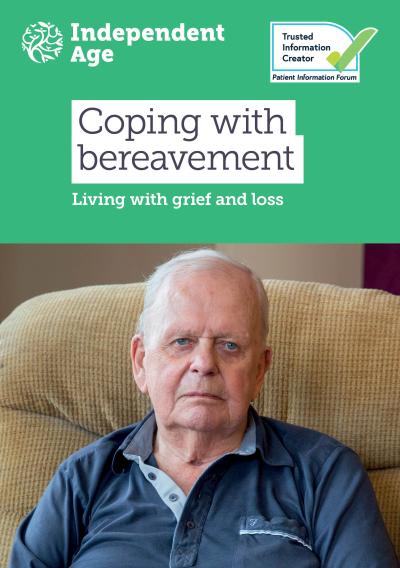Related publications

What to do after a death


When someone dies, their estate will need to be sorted out. The estate is everything left by them, including property, money and other possessions, any money they’re owed and their debts.
If there’s a will, this should say who the executor is and how the estate should be divided. In England and Wales, the executor should apply for probate - see below.
In Scotland, if someone is named as executor in the will, they can apply for confirmation. There's no need to also apply for a Bond of Caution.
In England and Wales
If there isn’t a will, there won’t be a named executor so an administrator will be appointed instead. If you’re the person’s next of kin, you may be able to apply to be the administrator. There is a strict order of priority for who can do this – read the government guidance on who can apply for probate for more information.
The administrator should apply for letters of administration. The process is the same as applying for probate – see below.
In Scotland
In Scotland, even if there isn’t a will or a named executor, you can still apply for confirmation (confirmation is the authority to deal with the estate of someone who has died). However, you may need to apply for a Bond of Caution, as an insurance policy.
A Bond of Caution protects the estate – for example, it protects against other people obtaining Confirmation when they are not entitled to do so. A Bond of Caution isn’t necessary if the total value of the estate is below £36,000 (this is known as a small estate). For more information, visit Office of the Public Guardian.
Before you can apply for probate or confirmation, you’ll need to value the estate. You can then work out whether Inheritance Tax needs to be paid.
There are a number of things to consider when valuing the estate, such as savings, investments and debt. For more information, see our factsheet What to do after a death.
You can also call the Inheritance Tax Helpline on 0300 123 1072 for advice or visit Gov.uk for more information.
The executor is responsible for getting probate – they can do this themselves or use a solicitor or other probate specialist. Many people get probate without using a probate specialist, but it may be best to use one if the estate is complicated. If you’re getting probate yourself, MoneyHelper has a useful guide.
If you’re using a probate specialist, they will charge a fee. You can search for a probate specialist through the Law Society.
To apply for probate you’ll need to:
Before you send the form, you’ll need to pay an application fee of £273 for estates over £5,000. For estates under £5,000, there is no application fee.
You will also have to sign a statement of truth confirming that the contents of your application are true. Keep copies of everything you have to send. When you’ve done this, you’ll be sent a letter telling you if there is any Inheritance Tax still to pay. Once this has been paid, the grant of probate or letters of administration will be sent to you through the post.
Once you’ve been granted probate (or confirmation in Scotland), you’ll need to contact the organisations that hold the assets of the person who died – for example, their bank, building society, or pension provider. They will then release the assets. They’ll ask you for a copy of the grant of probate or letters or grant of administration.
It’s usually a good idea to set up a separate executor’s bank account in which to collect the assets. You’ll then need to:
For more information on all of the above, see our factsheet What to do after a death.
If you're dealing with the estate of someone who has kindly left Independent Age a legacy gift, please contact us on 020 7605 4223 or send an email to legacy@independentage.org.